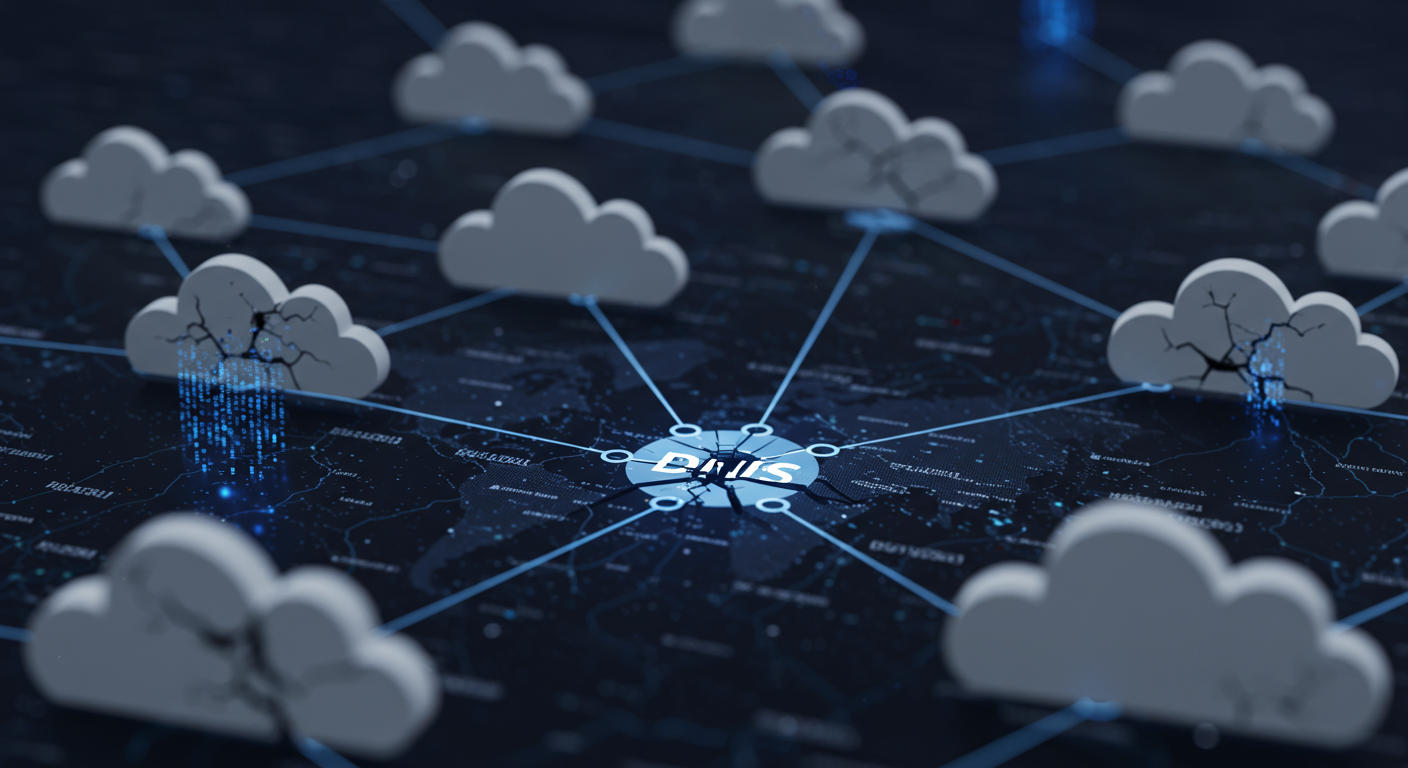
The digital world, for all its promised ubiquity and resilience, continues to remind us of its inherent fragility. Recently, reports of widespread outages across Amazon Web Services (AWS) and Microsoft's O365 services, particularly impacting regions like US-East-1, have once again highlighted how interdependent and, at times, vulnerable our global digital infrastructure truly is Reddit - Another AWS/O365 Outage.
I’ve observed the discussions on platforms like Downdetector, where users and experts from various corners of the internet, including handles like @grok, @unccno, and @K3vReilly, pointed to DNS issues and system glitches as the culprits. The detailed post-mortem by Midgard IT on a recent 15-hour AWS outage in North Virginia painted a vivid picture: a "latent race condition" in the automated DNS management system, which mistakenly deleted a DNS record for DynamoDB, cascaded into global disruption affecting major platforms like Snapchat, Reddit, Roblox, and even financial institutions like Lloyds Bank and Halifax Amazon AWS … What Happened? | Midgard IT. It reinforced that old adage in IT circles: "It's always DNS."
Reflecting on this, a striking sense of déjà vu washes over me. The core idea I want to convey is this — take a moment to notice that I had brought up similar thoughts and suggestions on the topic of system vulnerabilities years ago. I had already predicted such outcomes or challenges, and I had even proposed a solution at the time. For instance, in my earlier correspondence titled "WEbsite Down" WEbsite Down, I was troubleshooting website downtime with Kishan Kokal and Sandeep, specifically focusing on server firewalls, Nginx configurations, and crucially, DNS and domain configurations. We discussed how a server might only accept requests from itself, blocking external access – a scenario not so different from how a critical DNS record deletion can make services invisible to the wider internet.
Seeing how things have unfolded with these massive cloud outages, it's striking how relevant that earlier insight still is. Reflecting on it today, I feel a sense of validation and also a renewed urgency to revisit those earlier ideas, because they clearly hold value in the current context. The call for diversification of cloud setups, as mentioned by industry experts following the AWS incident, resonates deeply with what I've often championed: building in redundancy and avoiding single points of failure. The Midgard IT article highlighted how companies with multi-region or multi-cloud strategies were better equipped to handle the disruption.
This interconnectedness also brings to mind the ongoing discussions about the dominance of a few cloud giants. When Amazon, led by Jeff Bezos, provides the backbone for so much of the internet, any internal flaw can have global consequences. This power dynamic is something I touched upon when discussing the competition between Bezos and Mukesh Ambani in "Bezos Vs. Ambani: The Billionaire Bout That Had to Happen" Bezos Vs. Ambani: The Billionaire Bout That Had to Happen, and Ambani's strategic partnership with Microsoft, another major player in this cloud landscape, as seen in "Reliance Jio-Microsoft partnership to shape digital decade: Ambani" Reliance Jio-Microsoft partnership to shape digital decade: Ambani.
The implications extend beyond technical fixes. As Shri Rajeev Chandrasekharji emphasized in his call for platforms to be legally accountable for harm caused or enabled, the reliability of these digital platforms is not just a technical issue, but a matter of trust and societal function Platforms causing Harm : Defining Harm. These recurring outages force us to confront the reality that even the most advanced systems are susceptible to glitches, reminding us of the critical need for proactive, diversified strategies and robust accountability across the entire digital ecosystem.
Regards,
Hemen Parekh
Of course, if you wish, you can debate this topic with my Virtual Avatar at : hemenparekh.ai






No comments:
Post a Comment